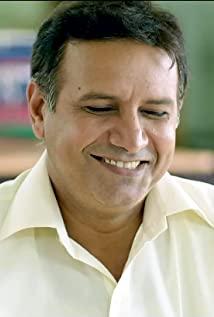"The Wrestler Sultan" and "Wrestle Dad" are both Indian movies and have similar themes, but what Kou Gongzi wants to say is that these are two different movies, both worth watching.
The film tells that Sultan from a small town in northern India met the daughter of a wrestling coach. For the girl he liked, Sultan not only began to learn wrestling, but also won the local championship in a short period of time, showing his determination and talent. Not only did he marry a beautiful woman, he also represented India in the Olympic Games with his wife, but at the same time as Sudan won the Olympic gold medal, he lost his beloved family because of his arrogance. The only way to win back his wife's heart is to stand back to his stage.
What is commendable is that when Chinese audiences are almost tired of Indian movies, "Sultan" has both breakthroughs and inheritance, which not only refreshes the audience, but also caters to the public. The two-pronged approach has made the film a great success. Only Aamir Khan has done so. Although this "Sultan" is not as pleasing to the eyes as the former in terms of action, it gave me the feeling of watching "Rocky" at first, and it was full of chicken blood. The theme of the whole film is the protagonist's mental journey, falling down and then getting up is the real hero. Like "Wrestling Dad", "Sultan" is an Indian film based on wrestling, but the difference is that "Sultan" does not have a heart-warming core like the former.
This one, together with "Toilet Hero" and "Starting Line", found that several recently introduced Indian films have a lot in common in character settings: the heroines are often fluent in English, highly educated, more modernized and Europeanized in concepts, and even Feminist women; and male protagonists are generally from the bottom, with low education, advocating national traditions, and can always achieve success through some local methods and market wisdom. The male protagonist always falls in love with the female protagonist at first sight, and the female protagonist dislikes the male protagonist at first, but will always be moved by his persistence in the end. After the two are together, although the male protagonist is also willing to make changes for the female protagonist to a certain extent and accept some more advanced concepts, the ending...mostly the female protagonist returns to the family and stands behind the male protagonist to silently support him .
Compared with Yinying, it has indeed achieved innovation on the basis of inheriting the tradition, and has taken another step on the road of commercial typification. The iconic slow motion and abusive soundtrack instantly highlight Bollywood's unique straightforward features. The biggest drawback is the simple and naive worldview, flat character setting, and idealized ending. At first glance, with twists and turns, under the blood-filled Indian singing and dancing, the film is just a lackluster inspirational routine. These still affect the look and feel from time to time. I praised the Indian music mixing team, and I clapped my hands with enthusiasm. Since the audience can accept the brainless Hollywood popcorn, why not accept the emotional differentiation of the Second Film Factory?
However, it is not unreasonable for the film to be joked by netizens that the Indian version of Huang Xiaoming took a photo of himself. The eternal routine, the protagonist's halo flashes blind. Young Master Kou still wants to make a joke, this is really a feminist movie! The heroine finally encouraged the hero to go to the game, obviously because she wanted him to die. Overall, a greasy bowl of chicken soup. It can be called a large-scale English teaching and blood donation propaganda film "Wrestling! husband".
View more about Sultan reviews











